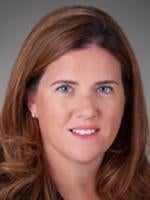On December 1, 2023, amendments to Federal Rule of Evidence (FRE) 702 geared toward emphasizing and explaining the responsibility of the judge as a “gatekeeper” for expert testimony took effect. On December 18, 2023, one of the first decisions to include an analysis under amended FRE 702 featured a New York federal judge fulfilling that gatekeeper role in granting defendants’ motions to exclude all five of plaintiffs’ experts’ causation opinions in the Acetaminophen ASD-ADHD product liability multi-district litigation (MDL) (In re: Acetaminophen – ASD-ADHD Products Liability Litigation, Case 1:22-md-03043-DLC).
The Court Ordered Early Expert Discovery on General Causation Issues Before Allowing Broader Discovery
In the Acetaminophen MDL, plaintiffs allege that prenatal exposure to products containing acetaminophen (i.e. Tylenol) caused later diagnosis of Autism Spectrum Disorder (ASD) and Attention Deficit Hyperactivity Disorder (ADHD) in the exposed children. The MDL consolidated claims brought against manufacturers and retailers of such products (both brand and generic), claiming deficiencies in labeling practices, in the Southern District of New York. After the court denied defendants’ motions to dismiss based on preemption, the court suggested, and the parties (sensibly) agreed to prioritize expert discovery on general causation, which could well be a case-dispositive issue. The court made clear that broader discovery would move forward only if the plaintiffs’ expert opinions on general causation met the requirements of FRE 702. They did not.
In a 148-page opinion, District Judge Denise Cote excluded all of plaintiffs’ general causation experts. In her opinion, Judge Cote explicitly noted the significance of the amendments to FRE 702: in footnote 27, she acknowledged that “one purpose of the amendment was to emphasize that judicial gatekeeping is essential.” (internal quotations omitted). Likewise important to the opinion was the amendment to FRE 702 requiring an expert’s proponent to show that proffered testimony more likely than not meets admissibility standards. The Advisory Committee notes clarify that the amendments were intended to make clear to courts that questions of the expert’s bases for their opinion are not mere questions of weight given to the testimony, but rather, require court scrutiny as part of the gatekeeper function to determine whether the testimony should be admitted at all. In excluding plaintiffs’ experts, Judge Cote noted, for example, that the experts applied a “transdiagnostic analysis” not generally accepted by the scientific community, that served not “to enlighten but to obfuscate the weakness” of their evidence. Id. at 48. This decision highlights and reinforces the judge’s responsibility to ensure rigorous scientific evidence is what gets presented in litigation, as envisioned by the Rule 702 amendments.
The Court’s Opinion Makes Clear that Pharmaceutical Epidemiological Causation Requires Rigorous Analysis
Throughout her opinion, Judge Cote applied both the FRE 702 and Daubert factors along with other considerations in cases involving issues of pharmaceutical epidemiological causation. First, Plaintiffs’ experts in the Acetaminophen MDL, like experts in many contexts, applied a causation methodology including the so-called the “Bradford Hill” criteria, a set of nine criteria used to distinguish cause from association, including in epidemiology. But here, Plaintiffs’ experts appear to have banked their opinions in part on the idea that no single one of the factors is required to infer causation. But the court went beyond that basic analysis, to require that experts must explain how they weighed each factor. Judge Cote noted that the experts’ “failure to explain how [they] weighed the Bradford Hill factors renders [their] analysis an unreliable application of a theoretically valid methodology.” Id. at 110.
Second, experts’ opinions must be “based on sufficient facts or data,” and in using that data, cannot exceed limitations placed by the authors of the relevant studies. Here, plaintiffs’ expert asserted that three studies “found that acetaminophen exposure beyond 28 days showed a two-fold increased risk for childhood ADHD and ASD diagnosis.” (internal quotations omitted). Id. at 145. But Judge Cote took the time to look closely at the underlying evidence and noted that none of the cited studies involved ASD. Moreover, the “greatest weight” in the expert’s analysis was placed on a study that “did not involve even an ADHD diagnosis.” Id. At the end of the day, the Court found that the analyses featured in published studies on the issue simply did not find any clear increased risk of ASD or ADHD due specifically to prenatal exposure to acetaminophen.
Third, if it was not already clear, under FRE 702, experts have the burden of explaining the scientific basis of their opinion, including, to quote the rule, that it is “the product of reliable principles and methods,” and “reflects a reliable application of the principles and methods to the facts of the case.” Plaintiffs’ experts here failed to show their work in this way. For example, to combat the alleged deficiency that their experts had simply thrown all pregnant women who used acetaminophen for sufficient duration at any point during their pregnancy without explanation, plaintiffs could offer little more than to plead that “there is nothing unscientific about lumping together all pregnant woman who use acetaminophen for more than 28 days at any point during the nine months of their pregnancies.” Id. at 144. Judge Cote rejected this argument, noting that on the contrary, the expert should have, but did not, assert a valid basis for grouping the study population in that fashion, “and it was his burden to explain why such aggregations of behavior are scientifically sound.” Id.
Finally, Judge Cote dispensed with several “fallback” arguments offered by the plaintiffs’ attorneys. These included focusing on the sterling credentials of their experts, portraying the overall “direction” of the underlying evidence, and urging adoption of a “more flexible standard” than one insisting a finding of association be statistically significant. Id. at 106-107. The court said that “[t]hese and more arguments like them do not relieve the Court of the obligation to scrutinize the methodology applied by [the expert] to ensure that it is sufficiently rigorous to pass muster by the standards established by his discipline, Rule 702 and Daubert. Id. Exactly right.
Why This Decision is Important
Since the U.S. Supreme Court’s decision in Daubert and the resulting 2000 amendment to the rule, FRE 702 has clearly required federal judges to act as the “gatekeeper” regarding the admissibility of proffered expert testimony. See FRE 702 Committee Notes to 2000 Amendment (“In Daubert the Court charged trial judges with the responsibility of acting as gatekeepers to exclude unreliable expert testimony, and the Court in Kumho clarified that this gatekeeper function applies to all expert testimony…[t]he amendment affirms the trial court’s role as gatekeeper…”)Over the years, courts have all too often relied on the weight v. admissibility theme to avoid the more difficult pieces of the gatekeeping task that the rule imposed. Therefore, the 2023 amendment to FRE 702 makes clear what had always been the intent of the rule. See FRE 702 Committee Notes to 2023 Amendments (“But many courts have held that the critical questions of the sufficiency of an expert’s basis, and the application of the expert’s methodology, are questions of weight and not admissibility. These rulings are an incorrect application of Rules 702 and 104(a).”) Going forward, there will be no need to spill ink arguing over what FRE 702 requires—rather, the parties can put their energy into providing the court with the information it needs to determine whether the proffered expert and her opinions will be admissible at trial.






 />i
/>i

